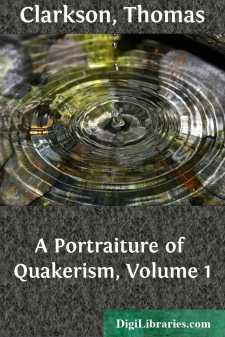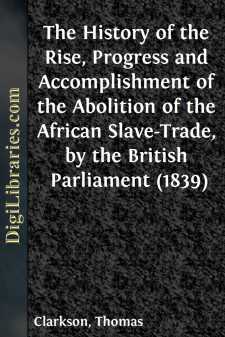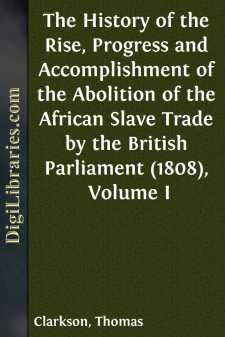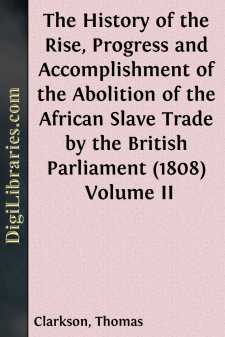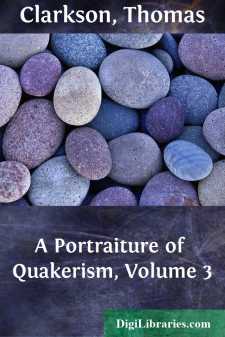Categories
- Antiques & Collectibles 13
- Architecture 36
- Art 48
- Bibles 22
- Biography & Autobiography 813
- Body, Mind & Spirit 142
- Business & Economics 28
- Children's Books 17
- Children's Fiction 14
- Computers 4
- Cooking 94
- Crafts & Hobbies 4
- Drama 346
- Education 46
- Family & Relationships 57
- Fiction 11829
- Games 19
- Gardening 17
- Health & Fitness 34
- History 1377
- House & Home 1
- Humor 147
- Juvenile Fiction 1873
- Juvenile Nonfiction 202
- Language Arts & Disciplines 88
- Law 16
- Literary Collections 686
- Literary Criticism 179
- Mathematics 13
- Medical 41
- Music 40
- Nature 179
- Non-Classifiable 1768
- Performing Arts 7
- Periodicals 1453
- Philosophy 64
- Photography 2
- Poetry 896
- Political Science 203
- Psychology 42
- Reference 154
- Religion 513
- Science 126
- Self-Help 84
- Social Science 81
- Sports & Recreation 34
- Study Aids 3
- Technology & Engineering 59
- Transportation 23
- Travel 463
- True Crime 29
A Portraiture of Quakerism, Volume 1
by: Thomas Clarkson
Categories:
Description:
Excerpt
INTRODUCTION.
MOTIVES FOR THE UNDERTAKING—ORIGIN OF THE NAME OF QUAKERS—GEORGE FOX, THE FOUNDER OF THE SOCIETY-SHORT HISTORY OF HIS LIFE.
From the year 1787, when I began to devote my labours to the abolition of the slave trade, I was thrown frequently into the company of the people, called Quakers, these people had been then long unanimous upon this subject. Indeed they had placed it among the articles of their religious discipline. Their houses were of course open to me in all parts of the kingdom. Hence I came to a knowledge of their living manners, which no other person, who was not a Quaker, could have easily obtained.
As soon as I became possessed of this knowledge, or at least of so much of it, as to feel that it was considerable, I conceived a desire of writing their moral history. I believed I should be able to exhibit to the rest of the world many excellent customs, of which they were ignorant, but which it might be useful to them to know. I believed too, that I should be affording to the Quakers themselves, some lessons of utility, by letting them see, as it were in a glass, the reflection of their own images. I felt also a great desire, amidst these considerations, to do them justice; for ignorance and prejudice had invented many expressions concerning them, to the detriment of their character, which their conduct never gave me reason to suppose, during all my intercourse with them, to be true.
Nor was I without the belief, that such a history might afford entertainment to many. The Quakers, as every body knows, differ more than even many foreigners do, from their own countrymen. They adopt a singular mode of language. Their domestic customs are peculiar. They have renounced religious ceremonies, which all other christians, in some form or other, have retained. They are distinguished from all the other islanders by their dress. These differences are great and striking. And I thought therefore that those, who were curious in the development of character, might be gratified in knowing the principles, which produced such numerous exceptions from the general practices of the world.
But though I had conceived from the operation of these sentiments upon my mind, as long ago as I have stated, a strong desire to write the moral history of the Quakers, yet my incessant occupations on the subject of the slave-trade, and indisposition of body afterwards, in consequence of the great mental exertions necessary in such a cause, prevented me from attempting my design. At length these causes of prevention ceased. But when, after this, the subject recurred, I did not seem to have the industry and perseverance, though I had still the inclination left, for the undertaking. Time, however, continued to steal on, till at length I began to be apprehensive, but more particularly within the last two years, that, if I were to delay my work much longer, I might not live to begin it at all. This consideration operated upon me. But I was forcibly struck by another, namely, that, if I were not to put my hand to the task, the Quakers would probably continue to be as little known to their fellow-citizens, as they are at present....


